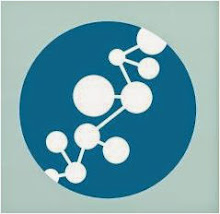
Human-Bacteria interactions: IAP may regulate microbiota.
Scientists increasingly recognize the importance of microbiota for human health.
Billion of billion of “bacterias and viruses” (more in number than the human cells) live inside our gut and sometimes they are good guests sometimes not.
The good bacteria, called probiotics, can liberate nutrients from food, fend off pathogenic microorganisms, and help regulate metabolism.

Of course there are many kinds of interactions between gut cells and bacteria and some of them are stricly regulated by intestinal hormones and enzymes like
Intestinal alkaline phosphatase.
IAP is an enzyme produced by enterocites and it could play an important regulatory role in the Microbiota equilibrium.
"IAP was discovered more than 50 years ago. Its role in fat metabolism is well documented; however, during the past decade, IAP has also been recognized for its role in maintaining the gut mucosa—the epithelial cell barrier that lines the GI tract—according to Hodin and co-authors. Hodin is currently funded by the NIDDK to delineate the mechanisms that govern IAP gene regulation to better characterize the dynamic physiological role this enzyme plays in metabolism and immune defense. Orally administered IAP might be an effective treatment for bacterial pathogenesis as well as a variety of disease conditions associated with dysregulated intestinal microbiota,” wrote the researchers. Other conditions associated with dysregulated intestinal microbiota include inflammatory bowel disease (IBD), AIDS, and obesity."
The finding also provides clues to understanding and treating conditions such as Clostridium difficile-associated disease.
The role of IAP appears very important because it can imodify pH of the gut.
We know very well that every little change in gut pH immediately causes a change in gut flora composition.
It is too early to understand the real clinical potential of these research but for sure it can help us to better undestand the incredible world that we carry inside... Our Microbiota.
To read more about the study, visit NIDDK
Tweet
Scientists increasingly recognize the importance of microbiota for human health.
Billion of billion of “bacterias and viruses” (more in number than the human cells) live inside our gut and sometimes they are good guests sometimes not.
The good bacteria, called probiotics, can liberate nutrients from food, fend off pathogenic microorganisms, and help regulate metabolism.

Of course there are many kinds of interactions between gut cells and bacteria and some of them are stricly regulated by intestinal hormones and enzymes like
Intestinal alkaline phosphatase.
IAP is an enzyme produced by enterocites and it could play an important regulatory role in the Microbiota equilibrium.
"IAP was discovered more than 50 years ago. Its role in fat metabolism is well documented; however, during the past decade, IAP has also been recognized for its role in maintaining the gut mucosa—the epithelial cell barrier that lines the GI tract—according to Hodin and co-authors. Hodin is currently funded by the NIDDK to delineate the mechanisms that govern IAP gene regulation to better characterize the dynamic physiological role this enzyme plays in metabolism and immune defense. Orally administered IAP might be an effective treatment for bacterial pathogenesis as well as a variety of disease conditions associated with dysregulated intestinal microbiota,” wrote the researchers. Other conditions associated with dysregulated intestinal microbiota include inflammatory bowel disease (IBD), AIDS, and obesity."
The finding also provides clues to understanding and treating conditions such as Clostridium difficile-associated disease.
The role of IAP appears very important because it can imodify pH of the gut.
We know very well that every little change in gut pH immediately causes a change in gut flora composition.
It is too early to understand the real clinical potential of these research but for sure it can help us to better undestand the incredible world that we carry inside... Our Microbiota.
To read more about the study, visit NIDDK
Tweet






No comments:
Post a Comment